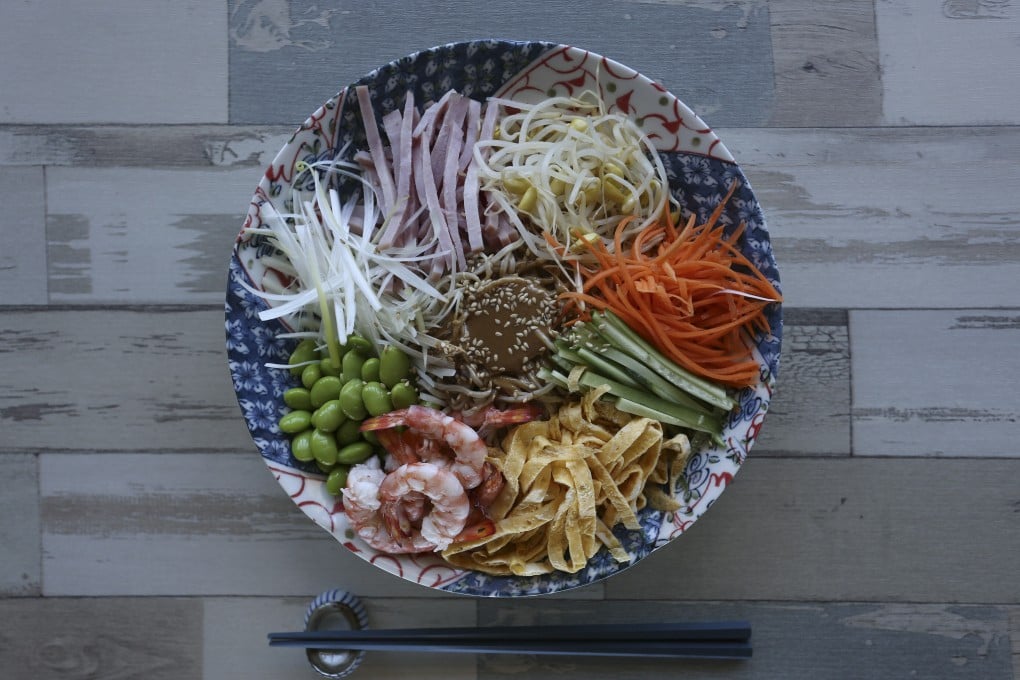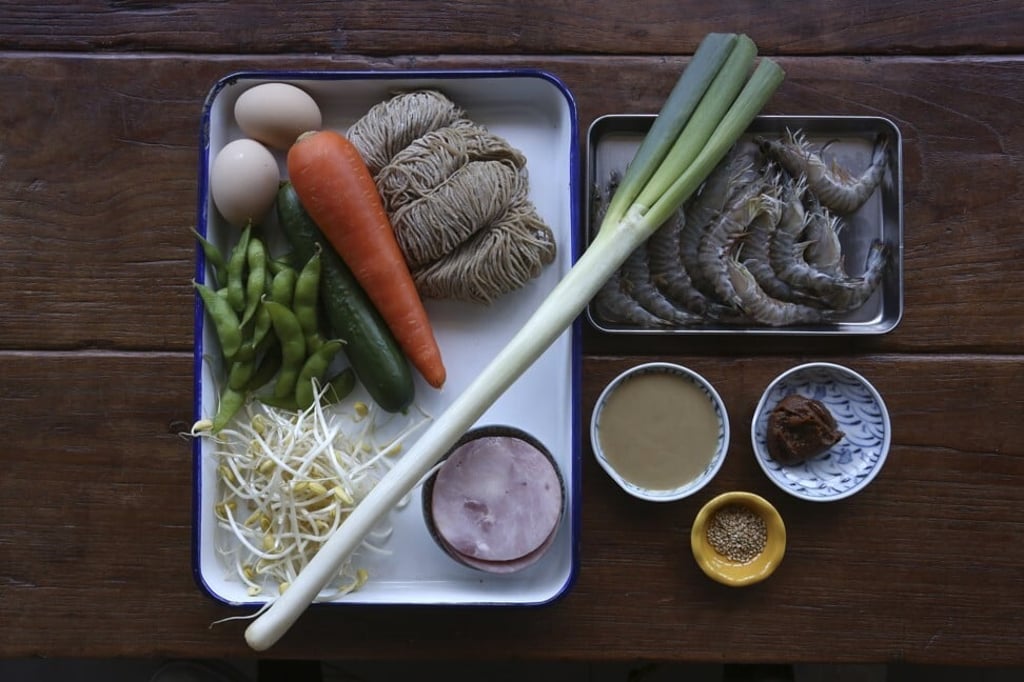How to make hiyashi chuka, or cold ramen noodles – a Japanese dish served in summer
- The Japanese name, hiyashi chuka, means ‘cold Chinese noodles’ and reveals its true origins
- This recipe swaps out crabsticks for fresh prawns and the usual vinegary sauce for one based on miso

It may be the start of September, but in Hong Kong, as in many other parts of Asia, it’s still blazing hot. In summer, many ramen shops offer a cold dish called hiyashi chuka; in the spirit of seasonal eating so important to Japanese cuisine, it is often taken off the menu at other times of the year.
Usually, the cold ramen comes with a watery, refreshing, vinegar-based sauce that you pour over the noodles, but I prefer a thicker, miso-based sauce.
Hiyashi chuka
Although ramen is usually considered a Japanese dish, its origins actually lie in China, and hiyashi chuka translates as “cold Chinese noodles”. You can vary the toppings as you like, adding (or substituting) shredded daikon, ripe tomatoes, matchsticks of mild, sweet peppers, fresh corn kernels or batons of fishcake. Many versions use crab stick, but I prefer fresh shrimp. The ham shouldn’t be cut too thin – choose slices that are about 3mm thick.
Edamame, or fresh soybeans, are sold in the pods. You can sometimes find them ready cooked in the frozen section of supermarkets, in which case, buy them, because they are delicious: sweet, tender and perfectly salted. Just let them thaw before using them, or, if you don’t have time for that, blanch the frozen soybeans in boiling water, then drain them before removing the pods.

350 grams fresh or frozen edamame pods